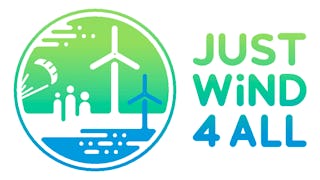*Broadening leadership competences to navigate economic, social and ecological challenges in wind energy transitions*
This course is designed to help you develop your leadership competencies through experiential learning, reflection, and applying new approaches based on what you learn. It consists of 6 modules which present different themes in the renewable energy transition, particularly: justice in the energy transition (Module 2), participatory practices with local community members (Module 3), perspectives of other-than-humans (Module 4), alternative ownership and governance models (Module 5), and the management of wicked problems in transitions (Module 6). Additionally, each module provides exercises to help you apply the gained insights in your daily work as a leader in the wind energy sector. Steering towards a just and effective wind energy system demands strong leadership. While the idea of a strong leader is often associated with someone dominant, assertive, and focused on clear, immediate outcomes, the complexity and uncertainty involved in the wind energy transition require a different approach. As the EU works toward reaching its goal of 45 % renewable energy by 2030, accelerating wind energy presents a range of challenges. It is not just about what is technically and financially possible. Local authorities and developers involved in wind energy focus on economic, social, and environmental issues to transform the wind energy system towards greater justice and effectiveness. Therefore, these 6 modules place a strong emphasis on developing transition leadership competencies such as deep listening, reflecting on your assumptions, considering the perspectives of others, facilitating collective learning, and collaborating with different actors. Completing this course, you have broadened your leadership competencies to navigate the complex and uncertain realities of the renewable energy transition.















